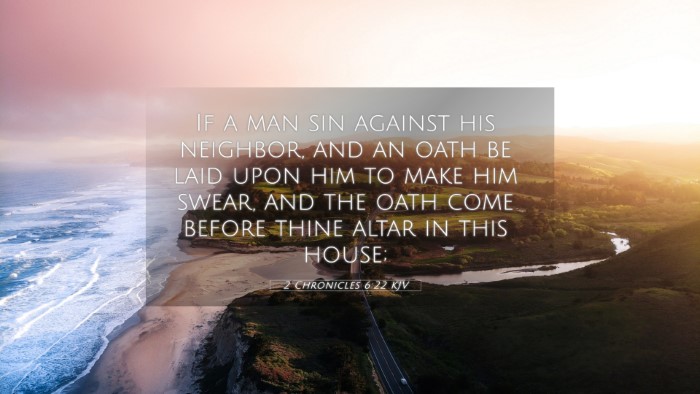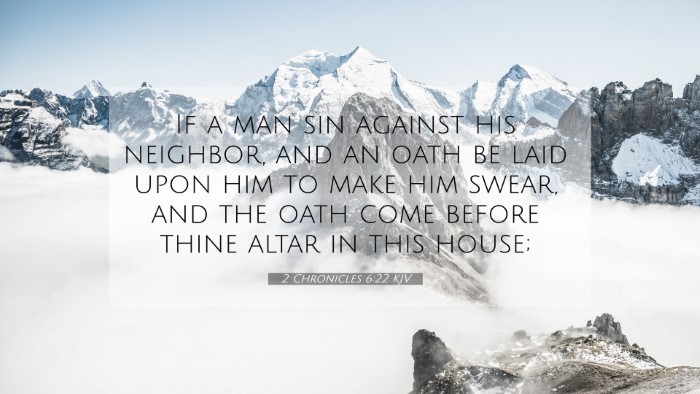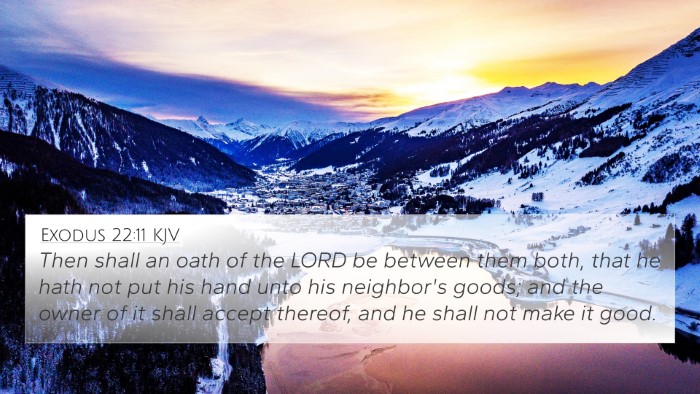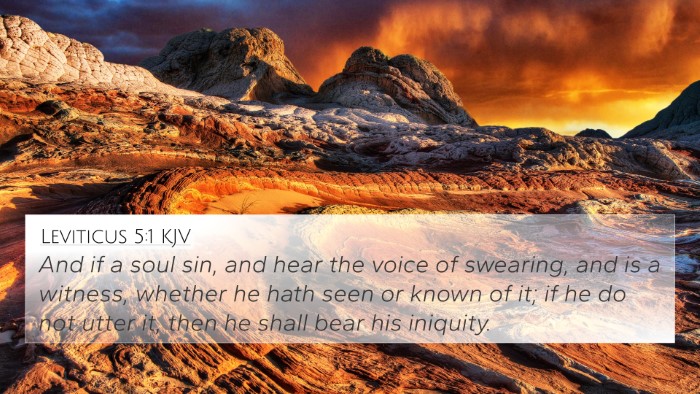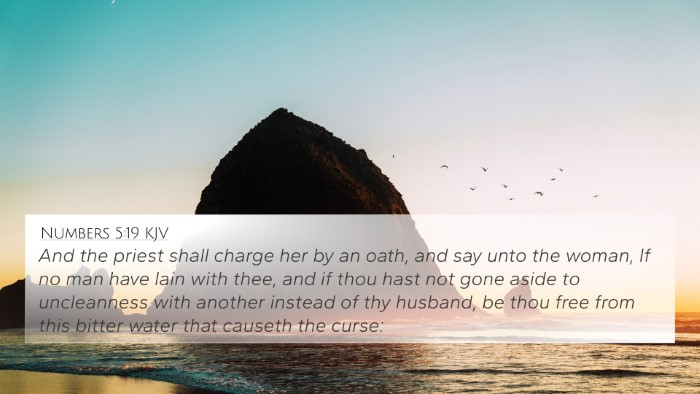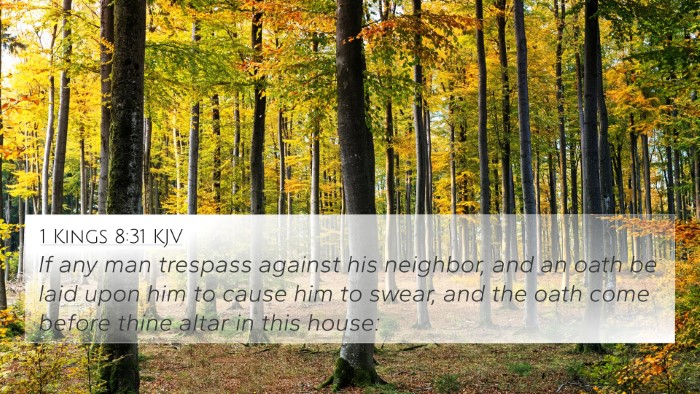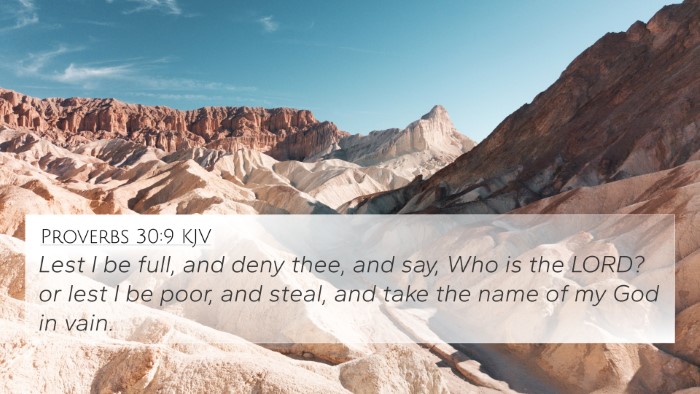Understanding 2 Chronicles 6:22
Bible Verse: 2 Chronicles 6:22
Verse: "If a man sin against his neighbour, and an oath be laid upon him to make him swear, and the oath come before thine altar in this house;"
Summary of Meaning
This verse is part of King Solomon’s prayer during the dedication of the temple, emphasizing God’s fairness in dealing with sinful actions among the people. Solomon acknowledges human weaknesses and the need for forgiveness.
Insights from Commentaries
-
Matthew Henry:
Henry discusses the significance of this verse as a commitment to uphold justice, as it highlights the importance of oaths and their role in maintaining truth in human relationships. He notes that the reference to the altar signifies the sacred nature of promises made in God's presence and the necessity for divine oversight in human affairs.
-
Albert Barnes:
Barnes points out that this scenario underscores the reality of human transgression and the possible conflicts arising from personal relationships. He emphasizes that the temple serves as a place of reconciliation and that oaths taken before God require a sincere commitment to uphold justice and integrity.
-
Adam Clarke:
Clarke elaborates on the implications of swearing an oath, explaining that it denotes a binding commitment to truthfulness. He suggests that the presence of the altar implies that God’s judgment will prevail in disputes among neighbors, and it encourages individuals to seek divine mediation in resolving conflicts.
Cross-References and Related Verses
This verse connects with several others that speak to themes of oath-taking, justice, and the role of God in human affairs:
- Exodus 20:16 - "You shall not bear false witness against your neighbor." This verse emphasizes the ethical duty towards truthfulness and integrity.
- Numbers 30:2 - "If a man makes a vow to the Lord, or takes an oath to bind himself by a pledge, he must do as he has promised." This illustrates the weight of oaths in biblical law.
- Matthew 5:33-37 - Jesus teaches about oaths, indicating that one should simply let their 'yes' be 'yes' and 'no' be 'no'.
- Luke 18:1-8 - The parable of the unjust judge pertains to justice and persistence in seeking it from God.
- James 5:12 - Encourages believers to avoid swearing oaths but to speak truthfully as a reflection of their faith.
- Psalm 15:4 - Describes a righteous person as one who keeps their oaths even when it hurts, highlighting fidelity to one’s word.
- Deuteronomy 6:13 - "Fear the Lord your God, serve Him only and take your oaths in His name." This links reverence for God to the practice of oath-taking.
Thematic Connections
Examining 2 Chronicles 6:22 alongside these verses illustrates thematic connections regarding how Christians view integrity, justice, and the seriousness of making promises. Through cross-referencing these texts, one can discern:
- **The Weight of Oaths**: Oaths are to be taken seriously, as portrayed in numerous verses emphasizing truthfulness and integrity.
- **Divine Justice**: God is invoked in matters of human disputes, underscoring the belief that He oversees matters of justice.
- **The Importance of Reconciliation**: The necessity for mediation in disputes highlights the overarching Christian themes of forgiveness and reconciliation.
Tools for Further Study
To delve deeper into the meaning and implications of 2 Chronicles 6:22 and its cross-references, consider using the following tools:
- Bible Concordance - A useful resource for identifying related verses and themes.
- Bible Cross-reference Guide - Helps in locating connections between disparate scriptures.
- Cross-reference Bible Study Methods - Effective approaches to studying the Bible by linking related passages.
Conclusion
In conclusion, 2 Chronicles 6:22 serves as a significant reminder of the sacredness of oaths and their impact on communal relationships. By employing cross-referencing methods, one can uncover deeper insights and connections that enrich understanding of biblical texts.

